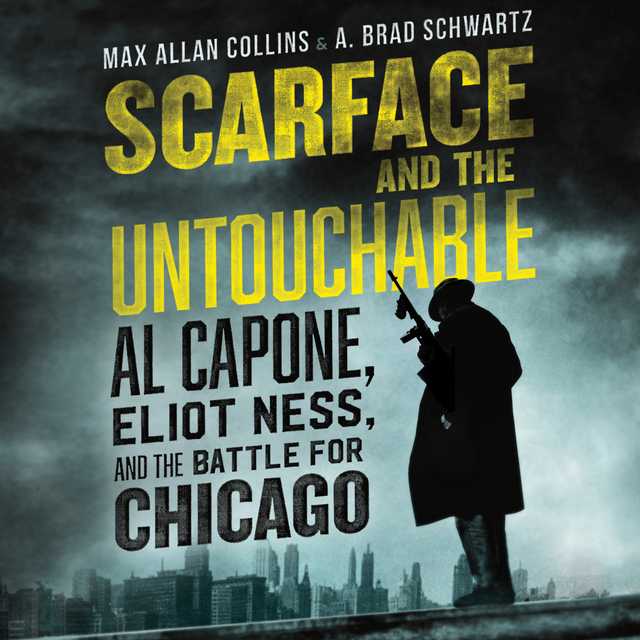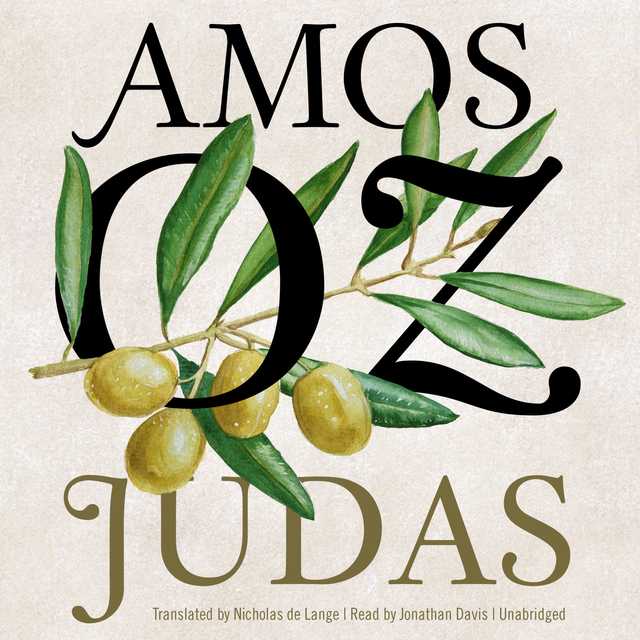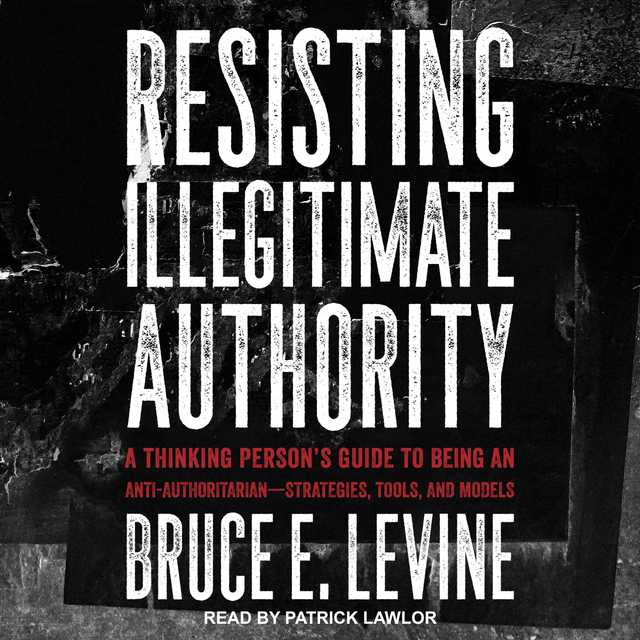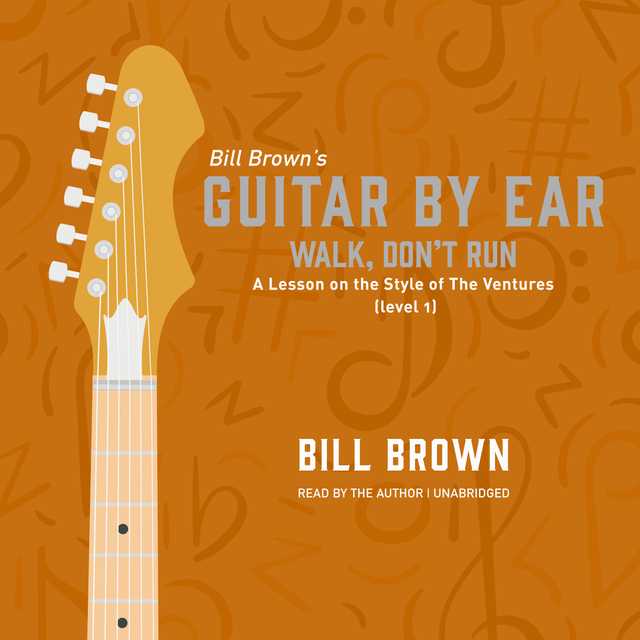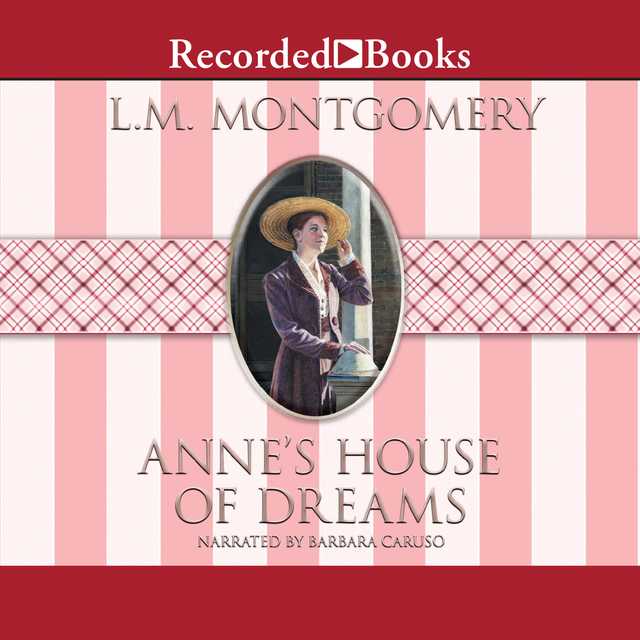Scarface and the Untouchable Audiobook Summary
A THRILLING MAGNUM OPUS ON AMERICA’S GREAT CRIME EPIC
A Mystery Writers of America “Grand Master”–author of the gangster classic Road to Perdition, long-time Dick Tracy writer, and multiple Shamus Award winner–teams with an acclaimed rising young historian, in this riveting, myth-shattering dual portrait of Al Capone, America’s most notorious gangster, and Eliot Ness, the legendary Prohibition agent whose extraordinary investigative work crippled his organization. Written with novelistic pacing and underpinned by groundbreaking research, Max Allan Collins and A. Brad Schwartz’s Scarface and the Untouchable delivers–at last–the definitive account of the “Battle for Chicago,” the iconic struggle between the mythic yet real combatants who have captivated the world for 90 years.
Other Top Audiobooks
Scarface and the Untouchable Audiobook Narrator
Stefan Rudnicki is the narrator of Scarface and the Untouchable audiobook that was written by Max Allan Collins
Max Allan Collins is a Mystery Writers of America Grand Master. He is the author of the Shamus Award-winning Nathan Heller thrillers and the graphic novel Road to Perdition, basis of the Academy Award-winning film starring Tom Hanks. His innovative Quarry novels led to a 2016 Cinemax series. He has completed a dozen posthumous Mickey Spillane mysteries, and wrote the syndicated Dick Tracy series for more than fifteen years. His one-man show, Eliot Ness: An Untouchable Life, was an Edgar Award finalist. He lives in Iowa.
About the Author(s) of Scarface and the Untouchable
Max Allan Collins is the author of Scarface and the Untouchable
More From the Same
- Author : Max Allan Collins
- Better Dead
- Fancy Anders for the Boys
- Fly Paper
- Quarry’s Blood
- Do No Harm
- Publisher : HarperAudio
- Abraham
- American Gods [TV Tie-In]
- Dead Ringer
- House of Sand and Fog
- Prey
Scarface and the Untouchable Full Details
| Narrator | Stefan Rudnicki |
| Length | 18 hours 36 minutes |
| Author | Max Allan Collins |
| Category | |
| Publisher | HarperAudio |
| Release date | August 14, 2018 |
| ISBN | 9780062849229 |
Subjects
The publisher of the Scarface and the Untouchable is HarperAudio. includes the following subjects: The BISAC Subject Code is Organized Crime, True Crime
Additional info
The publisher of the Scarface and the Untouchable is HarperAudio. The imprint is HarperAudio. It is supplied by HarperAudio. The ISBN-13 is 9780062849229.
Global Availability
This book is only available in the United States.
Goodreads Reviews
Glen
August 20, 2018
An exhaustively and meticulously researched book about the lives of Elliot Ness and Al Capone, and their battle for Chicago. Tracing the lives of the two men from their births, you learn almost everything there is to know about the time of the Untouchables.HIghly recommended.
Chioma
April 16, 2019
Well written
Walt
January 26, 2020
Having read a lot of books on organized crime and Al Capone in particular, I was not expecting much from yet another biography. I am pleasantly surprised at how much I enjoyed the book. It is more engaging than many previous books such as Bergreen's Capone The Man and the Era and Schoenberg's Mr. Capone. My only qualm is with their citations and source material. The book may be designed to be the definitive story of both Capone and Ness. It does not reach that goal. The authors race through Capone's rise to power and really begin their story with the St. Valentine's Day Massacre in 1929. This may be a literary ploy to provide balance between the personal stories of Ness and Capone. However, by glossing over so much of Capone's history, they leave themselves open to criticism. However, they do beautifully balance the story of both men throughout the book. Granted, Ness' story is not nearly as interesting at that of Capone; but the authors certainly work to make it appear that way. The additional focus on the law enforcement aspect adds a lot to the story. The Ness biography by Oscar Fraley is very short, so the authors do not rely on this source, although it pops up throughout the text. There are several new Ness biographies on the market. I learned a lot from this book about the Secret Six. I always thought they were a feeble organization; but the authors make the argument that they were successful - just not at persecuting organized criminals. Rather, it appears their activities were designed to assist the city's elite businessmen who funded them, using many of the extra-legal methods that were available. Their only real contribution against the underworld was some slight involvement in returning the loot from the Lincoln, NE bank robbery. The authors keep the book in a rigid chronological fashion. The chapter titles state clearly the period under discussion. This is beneficial for several reasons. One, the authors rely extensively on newspaper coverage of the era. This distances them from the arm chair writing of Pasley, Lyle, and Kobler. A lot happened in a very short window. The gang wars died out. Law enforcement increased. The Capone organization was under siege by every law enforcement agency under the sun each pursuing their own strategies. The chronological order provides much-needed focus and anchors the story in place.It shows an emphasis on obtaining primary documentation. One of their chief sources is the Chicago Tribune which may have been a step above the muckracking competitiors; but remains fixed with the information of the then and now. The authors valiantly try to add in the missing data from the newspaper accounts and provide hindsight and context; but he result does make their book more sensational that it might have been. Consider the popular image of Ness as being a publicity hound. Does it serve the authors to argue a contradictory thesis by relying on newspaper accounts lavishly praising Ness for his activities? I have not studied Ness as I have studied Capone. However, I can argue that the authors do not add much to the Capone story. Their writing is powerful, entertaining, and engaging. But I have the distinct impression that they are relying upon material that was published since Bergreen. Several times I thought, Gee that is directly from Eig's Get Capone or Eghigian's After Capone. I thought I saw some lesser known books like McArthur's Great Heist or Helmer's Capone and His American Boys. I was especially interested to know that they found evidence that at least one of the untouchables was, well, touchable. They also found evidence that Ness was under suspicion of corruption, though admittedly, after his publicized war against the Capones.One of the most notable characteristics of this 700+ page book is that 100+ pages are reference material. None of it is cited properly by academic standards. Locating many of the sources would be challenging. There are no citation markers in the text. Readers have to mark both the text and then try to correspond with reference material in the appendix. It is overwhelming. A close reading will note that there is an abundance of newspapers and sensational magazine stories courtesy of Amazing Detective or Fantastic Detective. I do not necessarily mind these sources. However, I feel there is a disconnect between the citing of these sources and the clear impression that the authors are processing information from Eig, Eghigian, Helmer, etc. I am not accusing them of plagiarism. They do refer readers to these works. Overall, it is an enjoyable book and possibly the best book on Capone's downfall. The authors make several arguments in the book that merit discussion. One is that Ness was not the publicity hound, he is often portrayed as being. Two, Ness was very successful in his persecution of Capone's beer racket. Three, Capone's own organization conspired against him. This last argument is a classic example of arm-chair scholarship. However, the fact remains that 2 of the most important trial witnesses against Capone continued working for the Chicago mob for a number of years. Also, the authors point to several significant flaws by Capone's lawyers before, during, and after the trial. It is an interesting argument; but evidence is hard to find. I did not see any obvious historical errors in the huge book. There is some question of bias because they use biased sources (such as John Lyle's Lawless Decade - Lyle was a judge of the era possibly, just possibly more biased than Wilkerson presiding over Capone's tax trial). However, I have no hesitation recommending the book to anyone interested in the period, Chicago 1929-1934. Readers should be dedicated to a long read!
Alan
March 07, 2019
Meticulously researched, this book will serve as the definitive history of prohibition era gangland Chicago. It clears up many erroneous impressions of the role of the prohibition enforecement unit known as the Untouchables in bringing down Capone and his Outfit. It credits them with negatively impacting the Outfit's cash flow and profitability while harassing and worrying them, but even if they had been able to secure any convictions relating to prohibition, no significant jail time would have resulted for Capone or his associates; the law didn't provide for anything beyond relatively small fines and short jail terms. The tax investigators, who were independent from the Untouchables and the other Prohibition enforcement officers, labored for over a decade to build tax evasion cases. When they finally brought Capone to trial with circumstantial evidence that wouldn't convict anyone in today's courts, the jury full of rubes who had already made up their minds to convict even before the trial began, voted randomly on the various counts because they were tired and hungry and wanted to go home. So Public Enemy Number One finally got what he deserved, but the whole business was such a farce that you couldn't make something up like that. Basically it came down to disorganized law enforcement versus organized crime. And the mobsters who felt Capone was bad for business because of his notoriety and the attention his celebrity brought to their "business," which many of them preferred to conduct quietly under the radar, well they at a minimum let it happen; and quite possibly they may have surreptitiously assisted the law to get Capone out of the way so they could take over. Everyone hears stories about how corrupt gangland Chicago was, but the extent of the violence, the corruption, and unbridled venality among public officials and mobsters alike staggered my mind. The detail in this book was impressive, yet for the most part it was still a very interesting and engaging read. A few times it bogged down by straying into esoterica, but overall it is well written and worth reading.
Sarah
November 19, 2019
Okay, so I know nothing -NOTHING- about this time period, really, though I'm finding myself suddenly fascinated with prohibition and all the things that happened during that time period. I kind of fell on this book when I was at the library, so I picked it up and I'm really glad I did. I do think that sometimes the author got a little too lost in the weeds, a little too focused on everyday tedium, but by and large, this book really impressed me. Al Capone is a hell of a character, and it makes sense why, when you say his name today (nearly 100 years after his hay day in Chicago) everyone still knows exactly who he was, if not the details of his life. On the other side, you've got the law, the men who were trying to enforce prohibition and try to stop all the gangs and violence. I really enjoyed seeing how Capone and Ness really balanced each other out in some ways, though it took me some time to become as interested in Ness's story. I have to admit, the guts that Capone had to do some of the stuff he did was just... amazing to me. Like, a reporter spurned him, so he bought the newspaper the reporter worked for, for example. This book really brought to life a lot of the prohibition issues, but mostly it really showed me a side of Capone that I (not knowing much about the man) wasn't aware of before. While I do think the author gets kind of lost in the weeds, and Ness didn't ever interest me as much as Capone did (which might just be who I am. I tend to like villains more than heroes), and I would have liked to see a bit more of prohibition as a whole, I really, really liked this book and I'm currently on the search for more of this nature, in this time period.
Melanie
February 03, 2019
This is a well researched book about Al Capone, Eliot Ness, Prohibition and the battle for Chicago. I found the book to be very interesting and would recommend it to anyone interested in this time period.
Paul
January 16, 2020
The authors of this title did a great job at building an effective narrative of two people that interacted directly once in their parallel careers. It felt, in many ways, like a fictional account of a gangster and a lawman, even though it is historically accurate. I am not a historian, so I cannot attest to the historical accuracy, but the sources cited were relevant and trustworthy, and both of the authors wrote about the difficulties of building a coherent narrative. I enjoyed this book immensely, following the life of the infamous Al Capone and the Untouchable Eliot Ness. The narrative held together well and was a real page-turner, especially as Capone and Ness got further into their respective careers and towards the final "showdown". There were interesting parallels that could be drawn to today, not necessarily with Capone and Ness, but more so with some of the minor characters that appeared.However, though the authors discussed being objective, especially compared to old narratives, I found that nearing the trial of Capone phase, the objectivity began to go out the window. Neither author is a legal expert, but spent much of the chapters on Capone's trial surmising what his lawyers could have done better, mistakes they made, and other opinions on Capone's lawyers. This really pulled me out of the narrative, because suddenly instead of presenting facts, or at the very least opinions by people that were present such as reporters, the authors decided to take it upon themselves to analyze the trial. Up until that point the book had felt much more objective and narrative-based, and was more enjoyable by far.The other difficulty I had with this book, which is not necessarily the authors' fault, was the relatively gigantic cast of characters. Attempting to follow who was who, especially among the minor players in the various gangs and agencies, became frustrating. This was especially prevalent during the early days of Capone's gang, which were filled with characters that were not always relevant to the grand scheme of the narrative. There was also inconsistent naming of some of the characters, sometimes using first names, sometimes last, sometimes both, sometimes nicknames, sometimes adding titles, etc. It made it harder to keep the characters straight in my head as I read and bounced between the Capone and Ness narratives.Overall, I really enjoyed this book. It kept me wanting to keep reading the next chapter and the next, even though I was well aware of the ending to the Capone narrative, as will others who read this book. I got to the end and found myself wanting the book to have been longer and more in-depth about some other area, just because the narrative was so compelling. It has certainly opened an interest into the fight against organized crime and the integration of criminal syndicates into the everyday life of cities and the effect that has had. I would recommend this book to anyone interested in Capone, or Ness, or even a passing interest in organized crime or federal investigators.
Mishehu
July 17, 2018
A vivid, engaging, and rigorously documented account of the Capone/Ness years. A first-rate popular history. I enjoyed it thoroughly.
Jake
December 09, 2020
I’ve been waiting for this book for years.There are so many works out there about Al Capone, most of them more fact than fiction, few of them recounting the gritty details of his battles with Eliot Ness during Prohibition. The Untouchables movie is more fantasy than reality, so was the TV show, depicting a Manicheean struggle between good and evil, law and order, etc. I wanted something that covered the full details of how these two met on the playing field of Chicago and what actually went down.This book satisfied my curiosity and so much more. It layers details in all the best ways, keeping the momentum of the narrative going while maintaining readability. It makes Capone more complex and fascinating than he’s normally portrayed, without letting one forget that he was a stone cold killer. It brings Eliot Ness to life, both demythologizing him but also showing him in a favorable light with quality contributions that helped to nab Capone. And it lays bare the ridiculousness of Prohibition enforcement, coupled with nativist sentiment from WASP power brokers without taking away from the horrors of mass death that came with the beer wars.If anyone wants a deeper look at Al Capone, the world he made, and how his rise and fall actually occurred, I’d recommend this in a heartbeat. It’s far better than other biographies and it gives the reader a complete picture of what was actually happening in Chicago at the time. Unquestionably, this is one of the best things I’ve read in 2020.
Denise
February 18, 2019
I am from Chicago, the South side, and grew up knowing this history....seeing these buildings and understanding that this is our heritage. This book is VERY detailed, and unless you know the city, you may not appreciate this much detail on people, places and things. It is written in TWO MONTH sections and yet...fails Al Capone somehow. Once he goes to prison, the writer is done with him. He did not die of syphillis in prison, he died of pneumonia in Miami after his release. But the writer(S)Are focused on telling more of the story of Chicago’s History than the end of this historic man’s story. It is a good book and much better than most attempting to tell the same story. Don’t let the length fool you - the last 1/3 of the book is acknowledgements, bibliography and sources. Enjoy the book and welcome to my hometown!
Amy
May 21, 2021
I originally found this in my local library displayed as a new book, but rereading the Dresden Files - John Marcone is one of my favorite characters; he's the local organized crime boss in the setting of the story - got me to take off my TBR. Though Scarface and the Untouchable dragged in places - I wasn't all that interested in Eliot Ness to begin with and he's certainly less interesting than Capone - the author presents a compelling narrative and explanation of early twentieth century Chicago-based organized crime and its implications on organized crime on through today. Not only that, but the author does an excellent job of humanizing someone whose figure and face has become a widely recognized symbol with largely negative connotations while making clear that Capone's reputation is earned. I don't think there's anyone who wouldn't recognize Al Capone and the tax evasion case that sent him to prison. It is, however, a special kind of narrative that can make me wince at brutality ordered, overseen, and even participated in in one chapter while making me very angry that the judge and jury essentially conducted a false trial and convicted at random on almost no evidence in another. Far from being some triumph of clever law enforcement agents, the Capone tax evasion trial was actually a farce overseen by a judge who made it clear from the outset he wanted Capone convicted, seen by a jury half-convinced to give the maximum sentence for deeds unrelated to the trial (and the other half of the jury, actually trying to do their civic duty, was eventually convinced by forced isolation and starvation to convict on the first charge in each year, no matter what it was or what evidence there was or was not for it), with Capone himself defended that by supposed tax law experts that were probably paid off by Capone's rivals to give a notably incompetent defense. While Scarface and the Untouchable is not necessarily a book that I would enthusiastically recommend to anyone not already interested in the topic, it was a good book that I learned a lot surprising information from.
Louis
January 18, 2021
So I started listening to this book on mp3. There was one disk. When that ended abruptly mid-story with no conclusion, I realized that the library had been ripped off in thinking that only one disk was needed. I notified the library and checked out the hardcover to continue the story.This is a very detailed work. It is the more remarkable because there is significant conflicting testimony which must be considered in reconstructing what actually happened in the story of Al Capone, the other gangsters, and the federal/local efforts to end the control of the Outfit. The bibliography and notes are extensive.A front section of photos divided into categories helps with some of the difficulty of remembering many names. While it was interesting to hear about the background family histories of Capone & Ness, the book could have been considerably shorter without this information. I am not sure that any of that information really casts much light on how either Capone or Ness turned out to be who they were.However, to prove that I can never be pleased, I felt that there was not enough information about Capone in prison or Ness after his Chicago days. I also was not much interested in Chicago's relationship to crime or governance after this time period. The fate of landmark buildings also did not much interest me. However, the details in the middle--the gist of the story--were fascinating and made for great reading. I felt that the coverage was balanced in not portraying either person as complete saint or sinner. Truly for diehard history buffs or those interested in this time period due to its length and detail. But if you are one these people, I highly recommend it.
Alex
August 16, 2019
A very interesting read detailing the lives of Al Capone, Eliot Ness, and the battle in Chicago during Prohibition. In alternating chapters, the authors show the rise of Al Capone from a small-time street gang member in New York to the head of the criminal underworld in Chicago. He was willing to do whatever was needed to ensure success of his businesses (liquor manufacturing & distribution, gambling, and prostitution), most notably the planning of the St. Valentine’s Day Massacre where 7 of a rivals gang’s men were murdered. Eliot Ness was a Chicago native. With the help of his brother-in-law he was able to work his way to the lead of the Prohibition Office in Chicago, where he was responsible for raiding the Capone distilleries and wreaking havoc on their business. Much of Capone’s story was well known, but I was surprised by Ness’s story. Popular culture has made him out to be this tough federal agent leading to take down Capone and his corrupt world. In truth, there was a large number of people involved from the government, and many more responsible than Ness for the final conviction of Capon on tax evasion. Eliot Ness seemed to be more of an annoyance to Capone and his Outfit, with other agents working independently to gather the information needed to send him away to prison. Anyone interested in Chicago history or organized crime with find a wealth of information within these pages. The co-authors take you inside the world of the roaring 20s in Chicago and keep you interested throughout.
Ted
February 05, 2021
A re-revison of Ness' legacyI especially liked the authors reflection on Chicago post Ness/Capone and its afterword. There was a sentence they used that Chicago merely wanted the 'appearance' of organized crime disappearing which they do a fairly convincing job of proving; they mention Alderman Ed Burke who railed against Ness' glorification who was later charged with racketeering. They profile both individuals early lives well and in detail but they fall a little flat in attempting to revise a downplayed, if not outright removed Ness from history. The later chapters so a fairy direct correlation between Ness' efforts disrupting the Outfit's bootlegging but early raids lack that connection. As with a lot of histories characters come in and out and unless taking notes it's hard to recall who is who. The Untouchables, for instance seemed to go in and out of Chicago; the authors make a good effort at explaining who leaves or comes back but it's still a bit hard to keep track off when a name appears and then reappears 35 pages or so later.However, the information is organized in a straight forward time line and is well researched. Definitely worth a read but I found their follow on book on Ness' career to be just a little more attention grabbing.
Em
May 27, 2020
As someone who lived in Chicago for a few months and even bought this book at the History Museum, it was fascinating. As a history major, I loved it. As someone with a decent attention span, it was hard to get through.The book has been researched extensively (hence a hefty portion of pages being referenced), but it sometimes adds too much detail. The book is around 550 pages of pure text and it’s a lot of fact after fact after fact. As someone who is used to reading history textbooks, that wasn’t abnormal. To someone who had just read “Devil in the White City” and was looking for another fun Chicago historical thriller, this would fall flat. It’s just so dense.However, the attention to detail makes MY little heart sing. Crazy to think I lived so close to infamous places such as the garage where the Valentine’s Day Massacre (which I walked to on a Sunday afternoon, it’s just an empty grassy field in between two buildings. No plaque or anything. The restaurant across the street is all about the 20s speakeasy style haha!) occurred and I walked past places ruled by gangland Chicago a century ago.
Eli
April 01, 2022
This was a fascinating book. I have been a fan of gangsters since I somewhere around when I first saw The Godfather in my teens. Really I love all crime and this book is like a really good crime story, that has the benefit of being true. Capone in real life is as larger then life as in any movie and Eliot Ness is equally interesting, though a lot less splashy and the sordid history of the crime and corruption filled Chicago in the roaring twenties is the most fascinating of all. Terrifically put together this book shines a fascinating light on two legendary figures in the annals of crime and law enforcement. A must read for anyone interested in the Capone, Ness, Prohibition , or Chicago history. Also an interesting read for anyone interested in the the roaring twenties, the USA depression of 1929. The only place I didn’t like that the authors had to say was their dismissal of Brian De Palma’s movie “The Untouchables” of course they are right about the ludicrous inaccuracies of the movie but my love for it is not diminished.
Frequently asked questions
Listening to audiobooks not only easy, it is also very convenient. You can listen to audiobooks on almost every device. From your laptop to your smart phone or even a smart speaker like Apple HomePod or even Alexa. Here’s how you can get started listening to audiobooks.
- 1. Download your favorite audiobook app such as Speechify.
- 2. Sign up for an account.
- 3. Browse the library for the best audiobooks and select the first one for free
- 4. Download the audiobook file to your device
- 5. Open the Speechify audiobook app and select the audiobook you want to listen to.
- 6. Adjust the playback speed and other settings to your preference.
- 7. Press play and enjoy!
While you can listen to the bestsellers on almost any device, and preferences may vary, generally smart phones are offer the most convenience factor. You could be working out, grocery shopping, or even watching your dog in the dog park on a Saturday morning.
However, most audiobook apps work across multiple devices so you can pick up that riveting new Stephen King book you started at the dog park, back on your laptop when you get back home.
Speechify is one of the best apps for audiobooks. The pricing structure is the most competitive in the market and the app is easy to use. It features the best sellers and award winning authors. Listen to your favorite books or discover new ones and listen to real voice actors read to you. Getting started is easy, the first book is free.
Research showcasing the brain health benefits of reading on a regular basis is wide-ranging and undeniable. However, research comparing the benefits of reading vs listening is much more sparse. According to professor of psychology and author Dr. Kristen Willeumier, though, there is good reason to believe that the reading experience provided by audiobooks offers many of the same brain benefits as reading a physical book.
Audiobooks are recordings of books that are read aloud by a professional voice actor. The recordings are typically available for purchase and download in digital formats such as MP3, WMA, or AAC. They can also be streamed from online services like Speechify, Audible, AppleBooks, or Spotify.
You simply download the app onto your smart phone, create your account, and in Speechify, you can choose your first book, from our vast library of best-sellers and classics, to read for free.
Audiobooks, like real books can add up over time. Here’s where you can listen to audiobooks for free. Speechify let’s you read your first best seller for free. Apart from that, we have a vast selection of free audiobooks that you can enjoy. Get the same rich experience no matter if the book was free or not.
It depends. Yes, there are free audiobooks and paid audiobooks. Speechify offers a blend of both!
It varies. The easiest way depends on a few things. The app and service you use, which device, and platform. Speechify is the easiest way to listen to audiobooks. Downloading the app is quick. It is not a large app and does not eat up space on your iPhone or Android device.
Listening to audiobooks on your smart phone, with Speechify, is the easiest way to listen to audiobooks.

